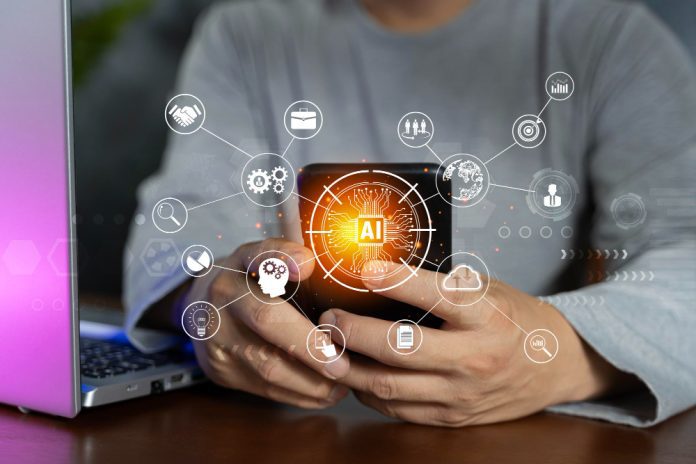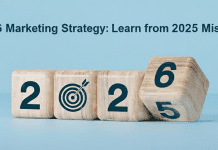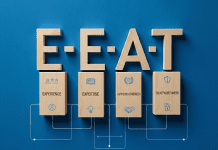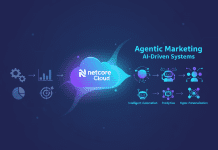The marketing world in 2025 is being rewritten, not just by algorithms but by bold CMOs who are embracing AI with strategic clarity. What started as a wave of automation tools has evolved into a powerful transformation, reshaping how brands connect with customers, measure value, and build lasting loyalty.
Today, Chief Marketing Officers are not just marketing leaders; they are AI architects, data translators, and transformation champions.
AI Moves from Tactical to Strategic
In the early 2020s, AI adoption in marketing was largely focused on improving operational efficiency. This included basic tools such as automated email campaigns, chatbots, and predictive analytics. Nowadays, AI is no longer a backend tool; it has become central to marketing strategy, enabling real-time personalization, customer journey orchestration, and generative content that supports business goals.
According to the 2025 Deloitte CMO Survey, 72% of marketing leaders report that AI now plays a central role in their overall marketing strategy. This is a significant increase from just 38% in 2023.
How CMOs Are Evolving in 2025
1. Redesigning the Martech Stack
Legacy systems and siloed tools are being replaced with intelligent, integrated platforms. AI-powered customer data platforms (CDPs) are at the core of this transformation, providing real-time insights and unified audience profiles.
CMOs are adopting solutions that support:
- Dynamic content creation using tools like Jasper and Writer.
- Predictive lead scoring based on behavioral data.
- AI-powered segmentation and customer journey mapping.
These platforms allow for seamless personalization across multiple channels, driving better engagement and improved ROI.
2. Hiring for AI-Readiness
Marketing teams are undergoing structural changes. CMOs are not only upskilling existing talent but also creating entirely new roles that support AI adoption. These include:
- Prompt engineers who craft effective AI inputs.
- Data translators who connect technical insights with marketing goals.
- AI ethicists ensure the responsible use of machine learning models.
Organizations are also investing in cross-functional teams that combine creative, analytical, and technical skills to drive integrated AI-powered strategies.
3. Shifting from Campaigns to Experiences
With the power of AI, CMOs are moving away from static, one-size-fits-all campaigns. The focus is now on dynamic customer experiences that evolve based on user behavior, preferences, and lifecycle stage.
Examples include:
- Personalized onboarding journeys in fintech platforms based on a user’s first touchpoint.
- Account-based campaigns in B2B SaaS platforms that trigger based on predictive buying signals.
- Real-time product recommendations driven by contextual customer data.
This real-time adaptability gives brands a competitive edge and positions marketing as a proactive growth function rather than a reactive one.
Real-World Applications
Salesforce
Salesforce has fully integrated AI into its Marketing Cloud, using Einstein GPT to personalize content delivery, segment audiences, and analyze engagement patterns. Clients have reported up to 34% higher conversion rates and stronger customer engagement.
Unilever
Unilever uses AI to monitor real-time sentiment across markets, enabling it to adapt messaging mid-campaign. This has resulted in increased campaign relevance and faster time-to-market for local variations.
HubSpot and Adobe
These platforms have introduced AI-powered content assistants and predictive audience tools, helping marketing teams scale efforts efficiently while maintaining brand consistency.
The CMO Mindset in the AI Era
The modern CMO mindset reflects a shift from campaign execution to innovation leadership. Successful CMOs in 2025 are:
- Embracing experimentation with emerging tools.
- Prioritizing agility and continuous learning.
- Encouraging collaboration between marketing, IT, and product teams.
- Using AI to validate decisions with real-time data.
This new role positions CMOs as strategic partners in digital transformation rather than functional leads.
Challenges and Considerations
Despite the promise of AI, it is not without challenges. CMOs must navigate:
- Data privacy concerns, especially with the rise of global compliance laws.
- Bias in AI algorithms can distort customer segmentation or targeting.
- Overreliance on automation can weaken brand authenticity if not properly managed.
To address these concerns, many CMOs are developing internal AI governance frameworks. These frameworks ensure ethical data use, transparency in automation, and compliance with regional and industry-specific regulations.
The Road Ahead
Looking forward, CMOs will play an even more critical role in shaping the marketing organization of the future. We can expect to see greater adoption of:
- AI-generated brand storytelling tailored to micro-audiences.
- Customer lifetime value modeling powered by predictive analytics.
- Voice, image, and multimodal AI interfaces for richer engagement.
Rather than fear AI as a threat, forward-thinking CMOs are embracing it as a tool to amplify human creativity, accelerate innovation, and deliver better business outcomes.
Conclusion:
In 2025, embracing AI is no longer optional for marketing leaders. CMOs who understand how to integrate artificial intelligence into every aspect of the customer journey are not just keeping up with the times, they are defining them. The future of marketing belongs to those who can balance the logic of AI with the empathy of human insight.










